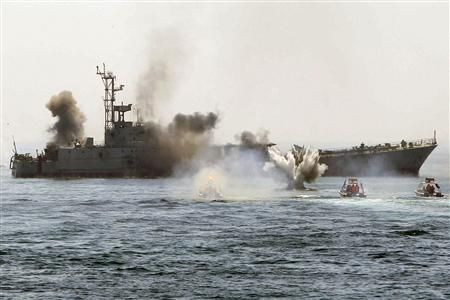What is the Strait of Hormuz?

The Strait of Hormuz is a vital passage for the world's oil tanker traffic, as nearly one-third pass through it.
A narrow waterway between the Gulf of Oman and the Persian Gulf, the Strait of Hormuz has Iran to its north coast and the United Arab Emirates on the south coast.
It's critical to oil-reliant countries since it is a strategic choke point, allowing more than a dozen tanker carrying millions of barrels of crude to pass through daily.
The Strait of Hormuz has been in the news recently because the price of oil spiked on Tuesday after rumors that Iran might close the Strait of Hormuz, disrupting supplies from the Persian Gulf.To get through the Strait, tankers must pass through Iran's territorial waters.
Prices for oil jumped more than two percent in York, rising $2.37 to $100.14 per barrel as traders reacted to chatter that Iran is practicing drills on closing the Strait of Hormuz. At some points in the day, oil rose as much as 3.6 percent before the jump was lessened by a denial of the rumor from Iran's Foreign Ministry.
A spokesman for the Foreign Ministry said the strait remains open, and that the country is not planning to close the vital waterway. The spokesman suggested the rumor was started by people who don't have official title.
If the world wants to make the region insecure, we will make the world insecure, the spokesman said according to the website of the state-run Iranian Students News Agency.
Threats of closing the Strait have been made before. In 2008, for instance, Iran's military leader said that if Iran was attacked by the U.S. or Israel it would seal off the Strait of Hormuz to rock oil markets. But the U.S. Navy and Gulf allies suggested such a move would be considered an act of war. They should they would not allow Iran to seal off the Strait.
© Copyright IBTimes 2024. All rights reserved.



















